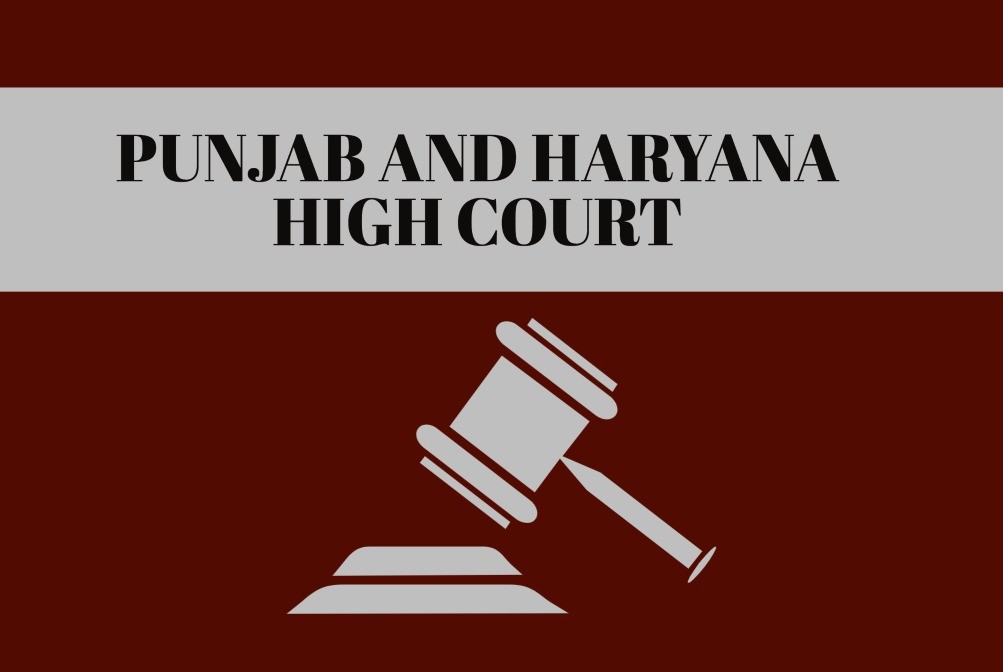Anything said earlier to filing of written statement with attempt to prevent interim order being passed, not to be construed as statement on subject matter of dispute: P&H HC

Monika Rahar
Chandigarh, March 15, 2022: Applying the ratio of the Supreme Court in Booz Allen and Hamilton Inc. Vs. SBI Homes Finance Limited & Others, (2011) 5 SCC 322, wherein it was held that any statement made at the stage of and for the purpose of opposition to the application under Order 39 Rules 1 & 2 of CPC or to prevent any interim order being passed by the court, could not be taken as a statement on the subject matter of the dispute, the Punjab and Haryana High Court has dismissed the petitioner’s petitione arguing to the contrary.
“Anything said earlier to this was nothing but an attempt to prevent the interim order being passed by the court. The judgment of the Hon’ble Supreme Court in Booz Allen (supra) fully supports the case of the respondent… As mentioned above, any of the statements dated 20.07.2021 or 27.07.2021 does not show any intention of the respondents to waive off the recourse to the arbitral proceedings. Rather the statements are in the nature of re-enforcing their assertion that they would seek arbitration under the agreement between the parties”, adjudged the Bench of Justice Rajbir Sehrawat.
The Court was dealing with a petition under Article 227 of the Constitution of India, praying for setting aside the order of the appellate court in which the Trial Court order was set aside and the appeal under Section 37 of the Arbitration and Conciliation Act by the respondents was allowed. There was a further prayer to dismiss the application under Section 8 of the Arbitration Act filed by the respondents.
In this case, there was an agreement between the parties containing an arbitration clause. The facts were such that originally, the petitioner-plaintiff filed a suit for injunction against dispossession by the respondent (original defendants). It was the case of the petitioner that the respondents stated before the trial court that they would not dispossess the petitioner except in accordance with the law. Based on this statement, the petitioner’s Counsel argued that the respondents thus submitted to the jurisdiction of the court qua the subject matter of the suit in almost its entirety.
The Trial Court referred the matter to a Lok Adalat for arriving at a settlement, however, after giving it a failed attempt, the Lok Adalat referred the matter back to the Trial Court. On the date fixed for hearing, the respondents sought time to file a Written Statement. Accordingly, the case was adjourned and on such adjourned date the application under Section 8 of the Arbitration Act was filed by the respondents.
The petitioner’s Counsel argued that the respondents’ Section 8 application was filed after the respondents made a statement qua the subject matter, submitting to the jurisdiction of the Civil Court, which was contrary to what the Arbitration Act provided (i.e. such application is to be made not later than such date of making the first statement qua the substance of the suit).
Reliance in this regard was made to Booz Allen’s Case (Supra) to submit that since the first statement on the substance came from the respondents wherein they expressed their intention not to dispossess the petitioner, except in accordance with the law, therefore, any subsequent application, moved under Section 8 of the Arbitration Act, would not be sufficient to take away the jurisdiction of the civil court.
On the other hand, the respondents’ counsel submitted that the respondents made their first statement in July 2021 and in the said statement the respondents did not submit to the jurisdiction of the court, rather, his right to take action against the respondents-defendants, in accordance with the law, including the agreement relating to the arbitration, was asserted. Hence, the Counsel argued that this statement, by any means, could not be interpreted to mean that the respondents relinquished their right to seek arbitration or showed any intention not to seek arbitration in the matter. It was submitted that the statement was made to avoid an injunction.
On the order referring the matter to the Lok Adalat, the counsel stated that it was done for the limited purpose of finding a settlement. Further, it was argued that on the adjourned date, the respondents got their first opportunity to make a statement on the substance of the suit and that on the same date an application under Section 8 of the Arbitration Act was filed.
Therefore, the counsel argued that the court below rightly reversed the order passed by the trial court and rightly ordered for referring the matter to the Arbitrator. Lastly, it was contended that the first statement made merely to avoid an interim order at the stage of consideration of the application under Order 39 Rule 2 CPC, could not be taken as a statement on the substance of the subject matter. The Counsel also placed reliance on Booz Allen’s Case (Supra), to support his case.
After considering the rival submissions, the Court perused the statement of the respondents-defendants before the Trial Court and observed that the statement showed that the respondents stated not to dispossess the plaintiff, except in accordance with the law. The Court opined that taking recourse to arbitration proceedings in terms of the arbitration clause contained in their agreement was the law, which was referred to by the respondents. Hence, the Court opined that by any means, it could not be said that the respondents waived their right to seek arbitration and that they intended to submit it to the jurisdiction of the civil court qua the subject matter of the suit.
“Hence, even if the statements dated 20.07.2021 or 27.07.2021 are taken to be the first statement made by the respondents, then also, the intention of the respondents is clear that they had communicated to the court that they would take recourse to the provisions of the agreement between the parties and accordingly, to the arbitration proceedings”, added the Court.
On the reliance placed on Booz Allen’s Case (Supra), the Court found the respondents’ reliance to be appropriate. Applying this ratio to the present case, the Court opined that the date of making the first statement on the subject matter of the dispute had not yet come by the time the application under Section 8 of the Arbitration Act was filed by the respondents, as no statement except the one made on July 20 and 27, was made by the respondents.
Thus, the court concluded that the statement of July 20 or 27, did not show any intention of the respondents to waive off the recourse to the arbitral proceedings. Rather the statements were in the nature of re-enforcing their assertion that they would seek arbitration under the agreement between the parties, the Court added.
On the reference of the matter to the Lok Adalat, the Court opined, “Merely because, on the statements referred above, the matter was sent by the trial court to the Lok Adalat for disposal, would not be conclusive to show that the above said expression was a willingness to the submission to the jurisdiction of the civil court.”
In view of the above, finding no merit in the present petition, the same was dismissed.
Sign up for our weekly newsletter to stay up to date on our product, events featured blog, special offer and all of the exciting things that take place here at Legitquest.




Add a Comment